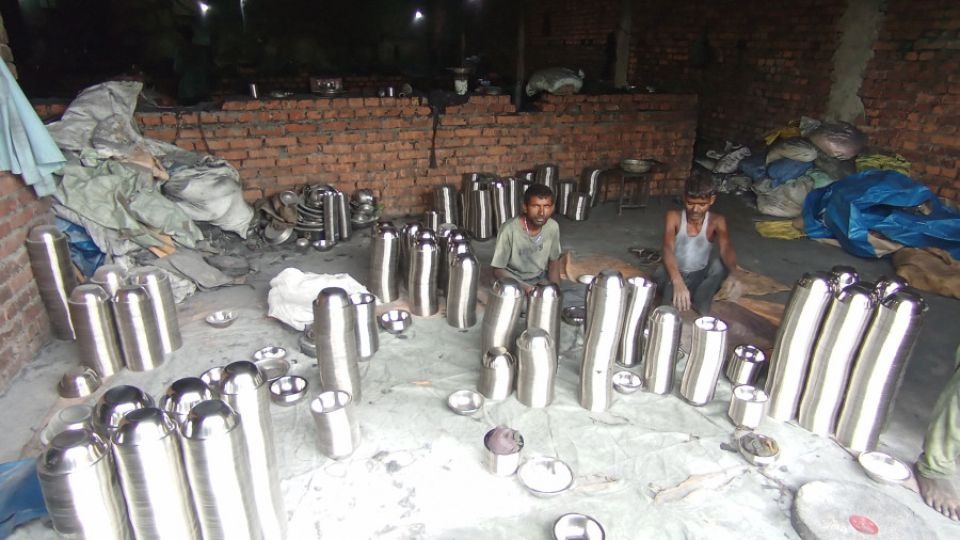
Follow WOWNEWS 24x7 on:

India’s latest regulatory shift targeting Chinese-origin steel has triggered a sharp disruption in Nepal’s export flow, bringing the country’s steel utensil trade to a near halt. The new mandate, which requires Bureau of Indian Standards (BIS) certification not only for finished goods but also for raw materials, has left Nepali manufacturers stranded with unsellable inventory and stalled production lines.
Trade Disruption and Policy Shift
- India has extended BIS certification requirements to raw materials used in steel products, a move previously applicable only to finished goods
- The regulation, introduced two months ago, is widely interpreted as part of India’s broader strategy to curb Chinese imports via third countries
- Nepali manufacturers, who source raw materials primarily from China, now face insurmountable barriers to meet the new certification standards
- The rule effectively demands that raw materials be of Indian origin to qualify for export clearance, even if the final product is manufactured in Nepal
This change has particularly impacted manufacturers operating within Nepal’s Bhairahawa-based Special Economic Zone, where steel utensil production was a key export activity.
Impact on Nepali Manufacturers
- Bhistar Global Pvt Ltd and Panchakanya Steel, two major exporters, have halted production due to the inability to certify Chinese-sourced raw materials
- Bhistar, which previously exported over 400 tonnes of kitchenware monthly, has scaled down to just 20–30 tonnes for domestic consumption
- Panchakanya, known for stainless steel tanks, has paused exports entirely, citing infeasibility under the new rules
- Approximately 200 tonnes of finished goods are currently stuck in Bhistar’s warehouse, awaiting resolution
Manufacturers argue that the BIS certification process for raw materials is not only impractical but also misaligned with international trade norms.
Technical and Administrative Barriers
- India’s Steel Import Monitoring System has been updated, but Nepal is not listed in the system, creating a technical blockade for exports
- Nepali exporters previously obtained production certificates from the Department of Industry and treated value-added goods as domestic products
- The new rule overrides this practice, requiring BIS certification at the raw material level, which is not feasible for Chinese-origin inputs
Officials at Bhairahawa Customs Office confirm that steel exports have been halted for nearly two months due to these regulatory and software-related issues.
Economic and Strategic Implications
- Steel and iron utensils ranked sixth among Nepal’s top 10 export items last fiscal year, with 38,725 tonnes worth Rs736.25 million exported to India
- The export freeze threatens foreign currency earnings and exacerbates Nepal’s trade imbalance with India
- Industry insiders believe the regulation is part of India’s broader strategy to block Chinese goods from entering its market through neighboring countries
- India has previously banned Chinese mobile apps and restricted over 370 Chinese products, reinforcing its protectionist stance
Nepali trade bodies warn that the new rule could force factory closures and long-term damage to the country’s export ecosystem.
Private Sector and Diplomatic Response
- The Siddhartha Chamber of Commerce and Industry has raised the issue with relevant authorities, urging diplomatic engagement
- Manufacturers are appealing to the Federation of Nepalese Chambers of Commerce and Industry for support
- Industry leaders argue that the rule unfairly targets Nepali products with Chinese components, including hydroelectricity
- Calls for reciprocal action or bilateral negotiations are growing, but no resolution has been reached
The private sector insists that the government must take the lead in resolving the crisis, as individual manufacturers lack the leverage to influence Indian policy.
Conclusion
India’s new steel import regulation, aimed at curbing Chinese influence, has inadvertently crippled Nepal’s steel exports. With production halted, inventories piling up, and diplomatic channels yet to yield results, the situation underscores the fragility of regional trade dependencies. As Nepal grapples with the fallout, the need for strategic dialogue and policy recalibration becomes increasingly urgent.
Sources: Asia News Network, The Kathmandu Post, MSN India, IMPRI India, Swarajya Magazine, Ekantipur, The Indian Express, The Himalayan Times



